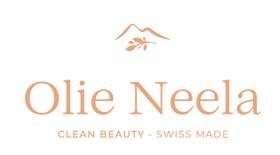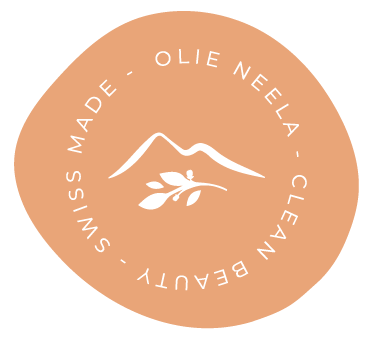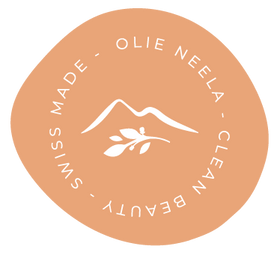Understanding Eczema to Take Back Control Naturally
Why do I have eczema?
Eczema or atopic dermatitis is linked to 3 main elements:
A genetic predispositionIf you (or your child) suffers from eczema, it is primarily because there is a genetic predisposition to it. Indeed, genetically the external barrier of the skin (the epidermis) is too permeable and no longer plays its role as a barrier. It lets the water necessary for the good health of the skin escape and allows external elements to pass through (allergens, bacteria, which will trigger a defense reaction). Always linked to genetics, atopy is accompanied by an immune system which overreacts to the slightest attack: in the presence of an element, sometimes banal, but considered harmful, the system goes into world war mode and tries to wipe out everything in its path. The result: inflammation under the skin barrier which results in eczematous outbreaks, which burn and itch.
Triggers
All elements perceived as dangerous will trigger an immune response. These elements called triggers can be allergens (food, environmental), chemicals, microbes or even bacteria…
Aggravating factors
And finally, certain factors will act as catalysts or aggravating factors. These include, for example, stress, hormonal imbalance, scratching or rubbing.
Common Eczema Triggers and Enablers

In adults:
- Food allergies or intolerance (to nuts, gluten, etc.)
- Imbalance of intestinal flora
- Environmental allergies (furry or feathered pets, moths, pollen of all kinds, mold)
- Temperature changes
- Hormonal imbalances (Premenstrual, Pregnancy, Puberty or Menopause)
- The stress
- Scratching (aggravates by attacking the skin and can also cause bacteria to penetrate under the skin)
- Imbalance of the skin microbiota
- Food allergy
- Drooling (due to a pH that is too high compared to the skin)
- Teething (immune system response)
- Childhood illnesses
- Vaccinations (allergy / immune system response)
- Insect bites
- Stress (separation, arrival of little brother or sister)
Strategy #1 to get rid of eczema: strengthen the epidermis

As we mentioned earlier at the heart of the problem is a skin barrier that is too porous. Schematically we can describe the epidermis as a wall made of bricks and cement which provides waterproofing. We know thanks to science that people with eczema, the cement, which makes the seal, is of poor quality and does not play its role well. Strengthening this skin barrier is therefore at the heart of any lasting solution to avoid eczema attacks . However, the lipid cement which constitutes the epidermis is made of essential fatty acids, cholesterol and collagen. It is therefore an excellent idea to strengthen the epidermis with the best that nature has to offer in this area: First organic cold-pressed virgin oils .
These oils are made up of essential fatty acids with multiple virtues and some have the ability to penetrate the upper barrier and nourish it.
Studies have shown that hydrating babies during the first 6 months of birth reduces the risk of eczema by 2 . Other studies have shown that good hydration helps reduce the frequency of attacks and reduces the amount of anti-inflammatory (cortisone) needed to manage them.
Strengthening your epidermis is therefore an important pillar of eczema management.
But it is not enough just to hydrate, but also to do so in the most optimized way possible: with excellent quality products which do not contain any harmful elements and which are of organic origin .
The power of organic virgin oils

Because they are made up of fatty acid (which is one of the components of the epidermis), they are derived from plants and can be chosen 100% organic, vegetable oils are the best options for strengthening its barrier. cutaneous . Some are nourishing like shea butter or sesame oil, others are anti-inflammatory like rosehip oil or hemp oil and others are naturally soothing like calendula flower macerate or even tamanu oil. Finally, some even have restorative properties like sea buckthorn or evening primrose.
Balms and creams based on virgin oils will help restore the skin barrier by strengthening it from the inside. They will also form a hydrolipidic film which will prevent loss of hydration. You should also know that balms are more moisturizing than creams which are more moisturizing than oils used as is. Cerate is the most hydrating form of all dosage forms. We see here that it is necessary to know how to combine and formulate your preparations optimally .
Cosmetics formulated with these precious organic oils from first cold pressing will work with your skin, deeply nourish it, soothe it and help it strengthen in the long term .
This is not the case for creams with mineral oils derived from petroleum, for example, which will just have a plaster effect and which do not teach the skin to fend for itself. As a result, as soon as you stop using them your skin is in distress and reacts to the slightest attack. The other problem with these “conventional” creams is that they contain preservatives or other chemical components specifically not recommended for atopic skin . However, some are prescribed by dermatologists. Find the mistake…
Habits to favor
- Use organic cosmetics without fragrance or petroleum derivatives with an easy-to-read ingredient list
- Adopt a fragrance-free and hypoallergenic face and body cleanser (same for shampoo)
- Strengthen the skin barrier by moisturizing at least twice a day : in the morning and in the evening and always immediately after bathing.
- Stop coating your body with cosmetics containing harmful, questionable or irritating ingredients
- Hunt for triggers (mites, mold, food allergens, too much heat or cold, irritating soaps)
- Reduce or eliminate cow's milk, fast sugars, industrial flours and alcohol from your diet
- Favor organic foods or choose foods less exposed to pesticides
- Dab the skin with a clean towel after bathing (rather than rubbing)
- Cut your nails and file them regularly (this way you limit the risk of germs under the skin when scratching)
- Wear clothes made from non-irritating fabrics (cotton)

The little extra things...
Manage stress and no longer suffer from it:
- Practice yoga several times a week to manage stress and oxygenate your body
- Practice mindfulness meditation
- Practicing meditative walks in the forest
A healthier diet:
- Eat more vegetables and fruits
- Drink enough water: 2L/day
- Carry out tests to determine your food allergies and intolerances and make the required evictions
Supplements:
- Supplementing with Vitamin D
- Probiotic
- Borage and Evening Primrose oil treatment internally
- Blackcurrant or Cedar Bud Cure
The little extra things:
- Thermal water (to spray on the body/plates)
- Dead Sea Salt Baths
- Cold to soothe itching (cream in the fridge)
- Oats to soften bath water if it is too hard
Continue to research the disease to be aware of the little things you need to know (Follow our blog, or our social networks)

Check list of habits and things to avoid
- Use emollients containing petrochemical derivatives of allergens
- Using cosmetics unsuitable for atopic skin (perfume, PEG)
- Take showers, hot and long or with soaps (stripping agents): the skin loses its oil, becomes dehydrated and becomes even more fragile
- Having a diet too rich in sugars, dairy products, processed flour
- Living with triggers (mites, pollen, pets) without knowing it or doing nothing about it
- Suffering stress and aggravating factors without strengthening preventive actions
With these tips and checklists, we hope you can soothe your itch and adopt a new, suitable routine.
OlieNeela with a lot of love xx






Leave a comment